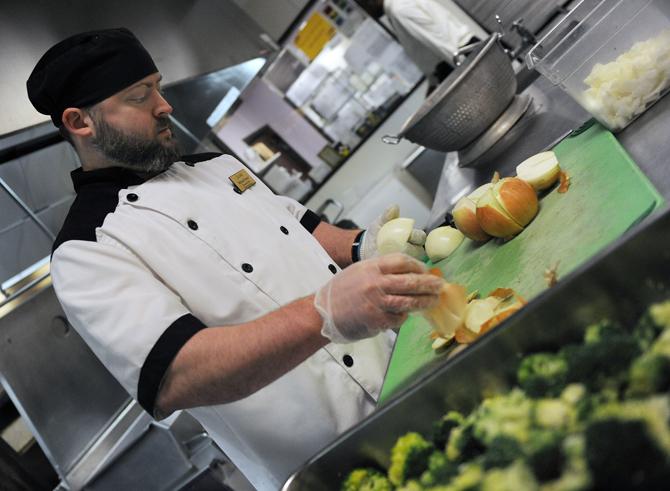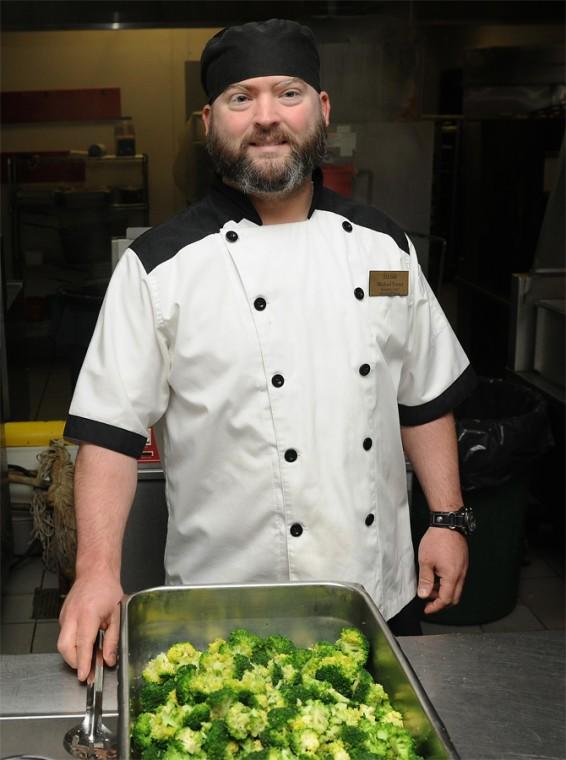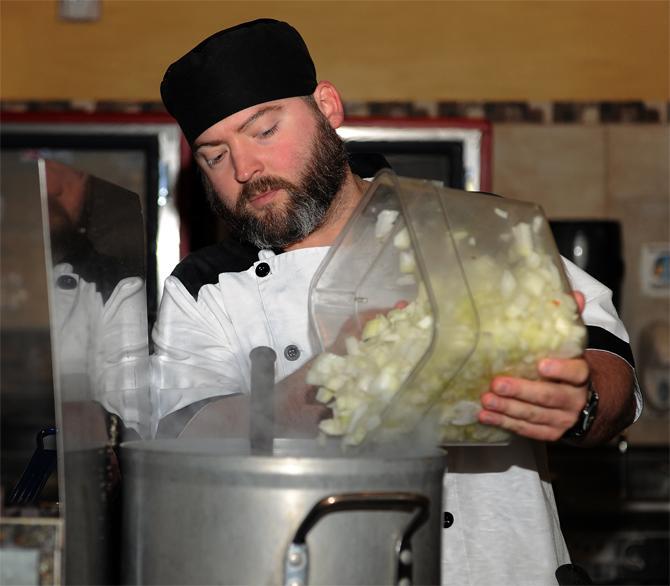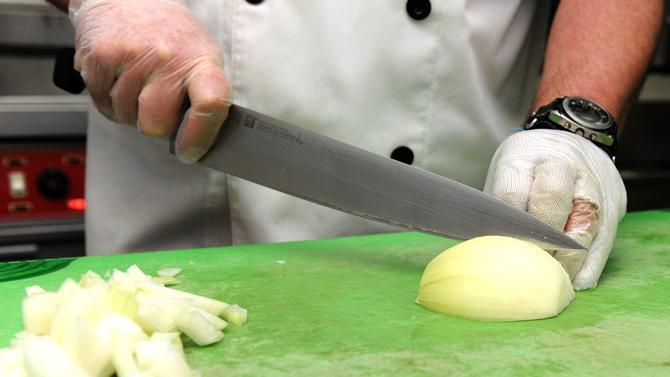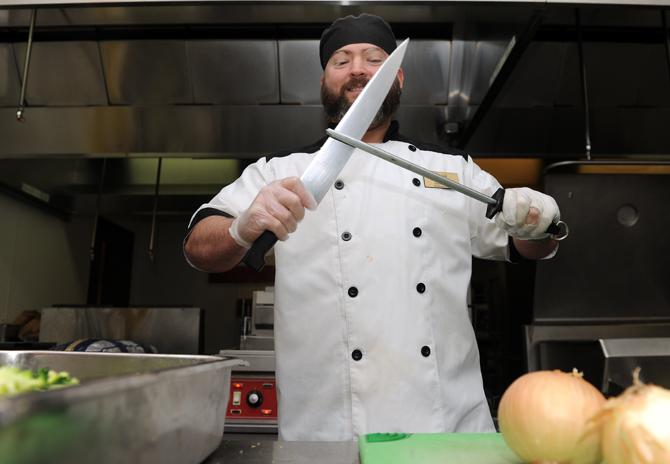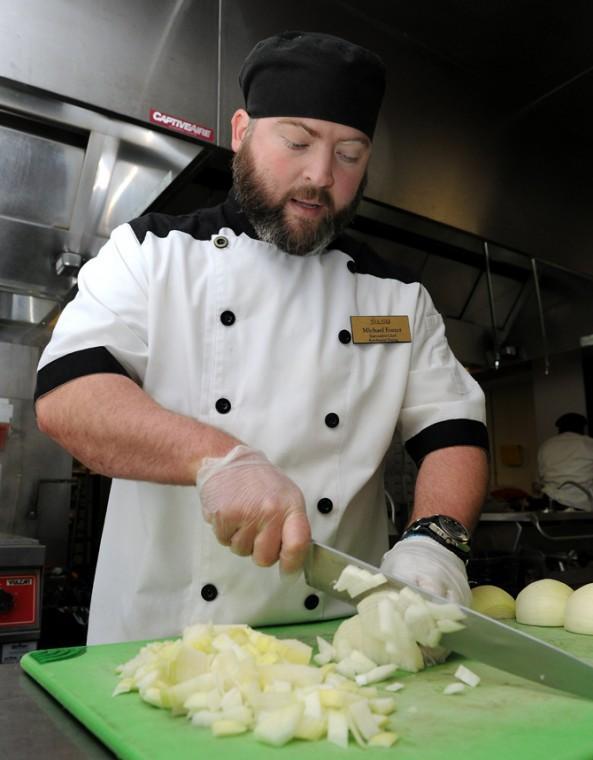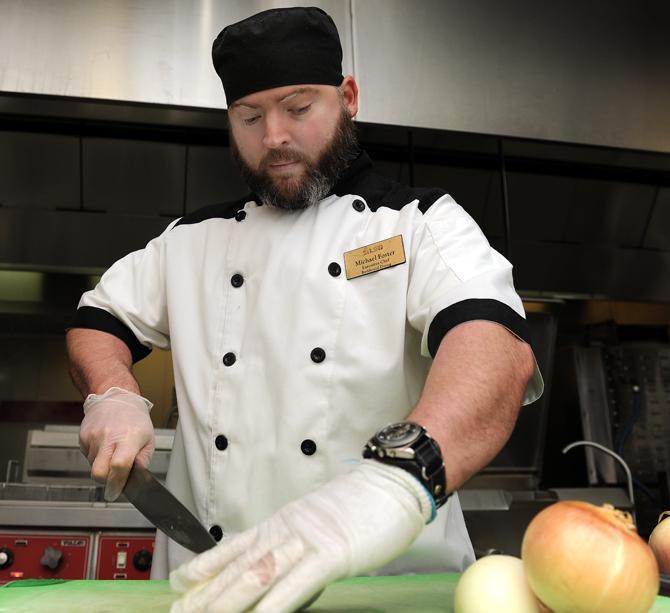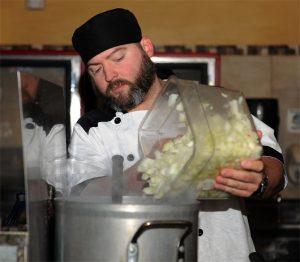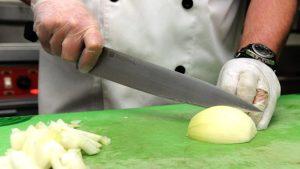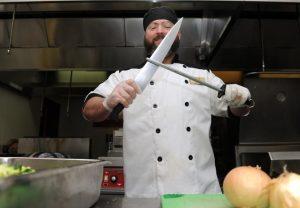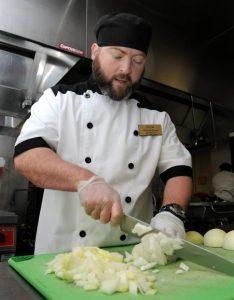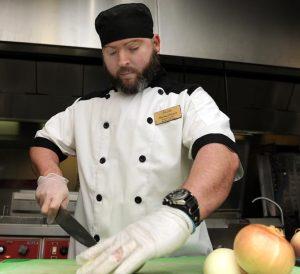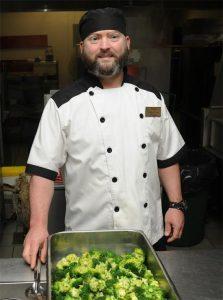The chefs at the University bring diverse culinary backgrounds and experiences to the campus dining halls.
Chartwells Dining, the company behind LSU Dining, conducts national searches for its executive chef positions, said Don Koshis, director of operations for LSU Dining.
“We get lots of inquiries,” Koshis said. “A lot of people want to come back to Louisiana or to experience a different area.”
Chefs are required to have a culinary degree or 10 years of equivalent service to earn the executive chef title, Koshis said.
“We have a detailed process that our company will go through before they will hire an executive chef,” Koshis said. “Years of service and culinary education are extremely important.”
Michael Foster, executive chef and director of The 5, fits both categories, Koshis said.
Foster graduated from the Pennsylvania Culinary Institute and also studied in Paris, France.
He was living in Huntington, Calif., when he responded to an ad on a national database for a position at the University, Foster said.
After his first interview, Foster returned to California with news for his wife.
“When I went home I said, ‘I’m not applying anywhere else. I’m going to get that job,’” Foster said.
A few trips to Louisiana and interviews later, Foster was on his way to cooking for thousands of students.
Foster’s job description immediately changed, as did the responsibilities that come with the title “executive chef.”
“When you become a chef here that position evolves from cooking into all the administrative stuff,” Foster said.
On a typical day, Foster must ensure that all products necessary for the day’s menu are available at The 5. He must also make sure that everything is clean and that everyone is doing their job.
He makes changes to the menus on the website when there are substitutions and checks over production sheets from the day before, Foster said.
Foster has also implemented an “externship” program in correlation with the Culinary School of Louisiana, said Charlie Casrill, resident dining director.
Students from the Culinary School of Louisiana come in and learn the processes. Some stay and continue their culinary careers at LSU, while others find jobs elsewhere, he said.
“It’s a big program that [Foster] started that has really benefited us in a lot of ways,” Casrill said.
Most importantly, he must pay attention to what the students are eating and what they are throwing away.
“I look at the trashcan in the dish room and see what’s thrown away so that I can kind of see what [students] didn’t like,” Foster said. “Then, we either change the recipe or change the product.”
His favorite part of the job is finding a plate with no food to scrape off. It means the students enjoyed the food they ate, he said.
While Foster spends his time in the kitchen, the chefs at the University can be found in other unlikely places.
Both Koshis and Casrill are executive chefs by trade.
“We’re not just a bunch of suits walking around,” Koshis said. “That’s what our company is all about, having food people understand and operate food operations.”


